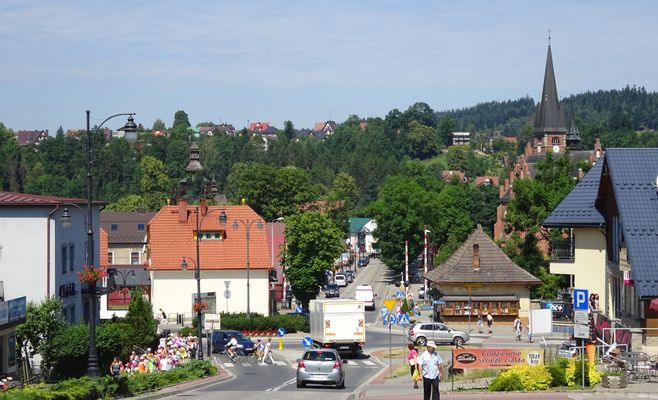Located in southern Poland, this mountain park spans 211 km² of alpine peaks, crystal-clear lakes and dense spruce forests, home to brown bears and Tatra chamois.
Tatra National Park covers Poland's only alpine mountain range, where the Rysy summit reaches 2,499 meters. You'll find deep valleys carved by glaciers, mountain lakes like Morskie Oko reflecting surrounding peaks, and forests inhabited by brown bears and wolves. The park's 275 kilometers of marked trails take you through limestone caves, past waterfalls, and across alpine meadows dotted with rare Edelweiss flowers.
Getting to Tatra National Park
The town of Zakopane serves as the main gateway to the park, located two hours by car from Krakow. Regular trains and buses connect Zakopane with major Polish cities throughout the year. Within Zakopane, local buses and taxis can take you to various trail starting points. You'll need an entrance ticket to access the park, which you can buy at booths near main entry points.
When to Visit the Mountains
Plan your hiking trips between July and October when most trails remain open and accessible. September and early October have fewer visitors while maintaining mild temperatures and clear skies. May works well for lower-elevation hikes, though snow often blocks high-altitude trails. In winter, the park becomes a skiing area, with Kasprowy Wierch as the primary slope.
Trail System and Navigation
You'll find an extensive network of trails marked with colored symbols and wooden signposts at intersections showing directions and walking times. Each crossing includes distance markers and time estimates to help plan your route. While the marking system helps navigation, bring both a paper map and GPS device for safety. Trails vary from flat forest paths to technical routes that require climbing equipment.
Mountain Huts and Overnight Stays
PTTK (Polish Tourist and Sightseeing Society) runs mountain huts throughout the park. These huts have shared rooms with bunk beds and serve hot meals. You can stay overnight to explore remote areas without day crowds. Staff at the huts provide updates about weather conditions and trail status. The park prohibits camping within its boundaries.
Wildlife and Natural Environment
The park houses approximately 20 brown bears, along with gray wolves, Eurasian lynx, and European otters. The vegetation changes with elevation: silver fir and European beech trees grow below 1,250 meters, while European spruce dominates up to 1,550 meters. Above this level, alpine meadows and rocky terrain contain mountain plants like Edelweiss and Swiss pine.
Key Destinations
Morskie Oko, the largest lake in the park, sits at the base of several peaks over 2,000 meters high. The Five Lakes Valley contains a chain of alpine lakes surrounded by granite peaks. Giewont peak, shaped like a sleeping knight, rises to 1,895 meters. For experienced hikers, the climb to Rysy takes 6-8 hours round trip and leads to Poland's highest point, with views extending into Slovakia.


















